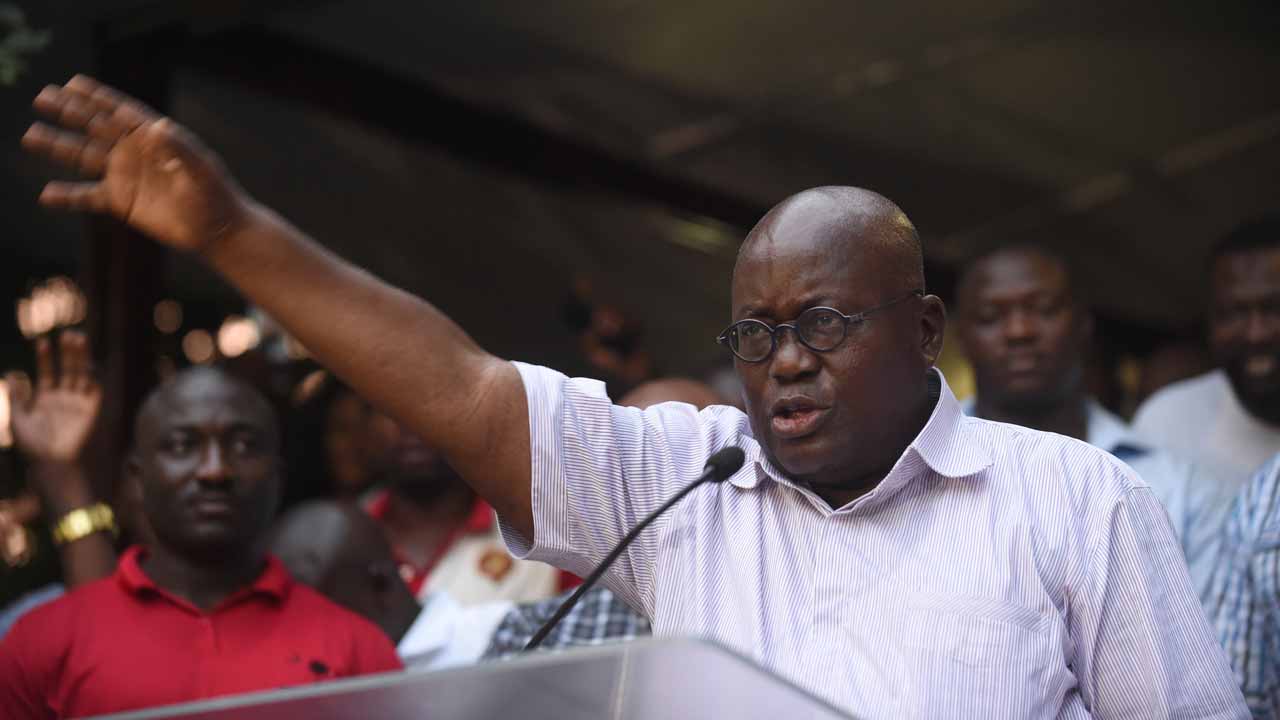- Nana Akufo-Addo Wins Ghana Presidential Election
Challenger Nana Akufo-Addo won Ghana’s national election on Friday, tapping into an electorate fed up with a sputtering economy and ready for change.
The erudite 72-year-old human rights lawyer cruised to victory winning 53.8 percent of the votes, according to the country’s election agency.
“I will not let you down. I will do all in my power to live up to your hopes and expectations,” Akufo-Addo said to an ecstatic crowd at his house in the country’s capital of Accra.
“I will do my best to serve your interests and put our country back on the path of progress and prosperity.”
Incumbent John Mahama conceded defeat in the evening two days after a hotly contested race that was seen as a test of the country’s democracy in a region plagued by dictators and coups.
Mahama called to congratulate opposition leader Akufo-Addo, whose New Patriotic Party (NPP) supporters had been gathering for hours outside his house after local media gave him a clear lead following the Wednesday vote.
“Yes he has conceded defeat,” George Lawson of Mahama’s New Democratic Congress (NDC) party told AFP.
Akufo-Addo had campaigned on a platform promising to boost growth and deliver jobs.
“The president of Ghana is president for every single Ghanaian,” Akufo-Addo said, as fireworks popped overhead and thousands of people cheered in the streets outside his house.
– ‘Gold standard’ –
Akufo-Addo’s supporters — almost all in head-to-toe white, a symbol of victory — had been dancing on his lawn for hours in anticipation of his victory speech.
At one point, they broke out in an enthusiastic a cappella rendition of Ghana’s national anthem.
“We have won,” said Hajia Mustafa, a 44-year-old trader, flashing a wide smile, “I have my president, I have my choice.”
The high-stakes race between Akufo-Addo and Mahama has been seen as a litmus test of the stability for one of Africa’s most secure democracies.
But fears of widespread violence erupting during the election never materialised, with a generally peaceful voting day followed by calm as the official results trickled in.
“I think Ghanaians should be extraordinarily proud of themselves,” said Ambassador Johnnie Carson of the National Democratic Institute, an election observer.
“Ghana has distinguished itself in the last two and a half decades with integrity and transparency,” Carson said.
“It is a gold standard for democracy in Africa.”
– ‘Escaped violence’ –
Yet while the European Union Election Observation Mission said that Ghana “largely escaped the violence many had feared” it pointed to other areas of concern.
“The misuse of incumbency, including unequal access to state media, and unaccountable campaign financing were areas Ghana could address in the future,” said the mission in a statement.
Akufo-Addo will serve a four-year term in the former British colony, a once booming country that has seen its economy slow, currency deteriorate and inflation soar.
Mahama, who came to power in 2012 after beating Akufo-Addo, had urged voters to “stay the course”, promising to deliver more infrastructure projects.
In his third bid for the top job, Akufo-Addo blasted Ghana’s poor economic growth rate — estimated at 3.3 percent in 2016, the lowest rate for two decades — and laid out a radical vision to transform the country’s economy.
Akufo-Addo had also warned his supporters that “vigilance is key” at the polls in an attempt to avoid a repeat of the 2012 vote — narrowly won by Mahama with 50.7 percent — that he contested unsuccessfully in the country’s Supreme Court.
Ghana is the world’s second biggest producer of cocoa after Ivory Coast and Africa’s second biggest gold producer after South Africa.
But it was forced to turn to the International Monetary Fund (IMF) in 2015 for a bailout as global commodity prices tanked.


 Forex2 weeks ago
Forex2 weeks ago


 Naira1 week ago
Naira1 week ago
 Naira4 weeks ago
Naira4 weeks ago
 Company News4 weeks ago
Company News4 weeks ago
 Billionaire Watch1 week ago
Billionaire Watch1 week ago




 Naira2 weeks ago
Naira2 weeks ago




 Naira1 week ago
Naira1 week ago




 Naira3 weeks ago
Naira3 weeks ago





















